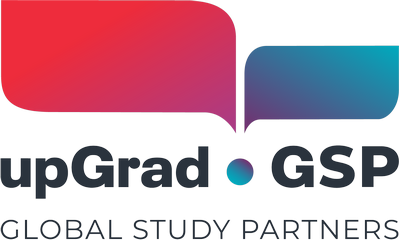Last updated: 20 November 2024
Visa and immigration regulations constantly change to adapt to the needs and circumstances of the international education sector and its stakeholders. To help our partners stay updated, we detail the latest guidelines for international students in North America, particularly in the United States and Canada.
United States
Generally, foreign nationals who wish to study in the United States must obtain an F- or M-category student visa. The F visas applies to students who will attend:
- university or college
- high school
- private elementary school
- seminary
- conservatory
- language training program.
Under this category, F-1 visas are the most common type applied for by international students in the US.
Meanwhile, M student visas apply to students enrolling in a vocational or other recognised non-academic institution, other than a language training program.
Validity
F-1 student visas are valid for up to five years. However, it’s important to note that its validity is only valid in conjunction with a Form I-20, also known as the “Certificate of Eligibility for Nonimmigrant Student Status.” This document proves that a student is a legitimate enrollee in an accredited college or university, and is given by a designated school official (DSO).
An international student in the US is typically permitted to remain in the country for the entire duration of their studies or attendance in an academic institution and the Form I-20 notes the specific authorised length of stay. International students must depart the US within 60 days after the program end date listed on their Form I-20. However, there are options available for students to extend their stay in the US.
Cost
The processing fee for a US student visa is US$185. This is non-refundable and doesn’t include additional costs such as those related to the Student and Exchange Visitor Information System (SEVIS) application. Students can expect to pay upwards of US$500 for the entire process.
Eligibility
To be eligible for a US student visa, the applicant must:
- be accepted to a Student and Exchange Visitor Program (SEVP)-approved school
- be enrolled as a full-time student at the accepting institution
- be proficient in English or enrolled in courses leading to English proficiency
- have proof of sufficient funds to support their stay in the US
- exhibit adequate ties to one’s home country and show an intent to return after finishing their studies.
After getting into an accredited program and institution, the student must register for the SEVIS and pay the necessary fees.
Work limitations
F-1 students may not work off-campus during their first academic year, but they may accept on-campus employment under certain conditions and restrictions. After that, they may work through curriculum practical training (CPT) or optional practical training (OPT). Both CPT and OPT are programs that allow international students to pursue employment outside of school related to their field of study and as authorised by their DSO. Some students may also work off-campus on a case-by-case basis in special situations (e.g. severe economic hardship or special student relief).
Bringing family
International students may bring their spouses and unmarried, minor children during their study. The main applicant must provide a copy of their approved student visa and provide proof of relationship.
Eligible family members must then apply for F-2 or M-2 visas, for which they need individual Form I-20s from the main applicant’s accepting institution. Accompanying minor children can attend school in the US while accompanying their student visa-holding parent.
How to apply
Students must apply for a US visa application outside of the country (i.e. in the student’s home country). The process may vary per US Embassy or Consulate, so students should consult their local office for specific instructions. Here’s a general step-by-step guide for applicants:
- Complete the online non-immigrant visa application form (Form DS-160).
- Schedule an interview at the US Embassy or Consulate in their home country.
- Prepare for the interview and gather the required documents. While some additional documentation may be required, students usually need to bring their valid passport, a printed copy of their DS-160 application confirmation, their application fee payment receipt, a photo and their Form 1-20.
- Attend the visa interview.
In some cases, the consular office will inform the applicant if their application has to undergo further administrative processing. Moreover, in some countries, approved applications may be subject to additional fees before the passport can be released.
Latest visa news in the US
- US State Department takes steps to streamline student visa process – 28 August 2024
- US Visa wait times improve in India, opening more opportunities for international students – 28 August 2024
- US is now the most preferred study destination for international students – 21 May 2024
- The US is set to welcome more international students by 2030 – 21 May 2024
- US sees a growth to over 10 million international students globally by 2030 – 23 April 2024
- US student visa news in 2024 – 22 April 2024
- US professionals collaborate on national strategy for international education – 26 March 2024
- F-1 visa latest news in 2024 – 7 March 2024
- US universities experience a 13% growth in international scholars – 23 February 2024
- US higher education sees sharp growth in international student numbers – 14 December 2023
- US visas issued for international students exceed pre-pandemic figures – 31 August 2024
- Indian students emerge as a top market in the US – 27 July 2023
Canada
Most foreign nationals in Canada who wish to attend a course longer than six months must obtain a study permit, which allows them to study at designated learning institutions (DLIs) in the country.
If a student’s study permit application is approved, they are given either a visitor visa (temporary resident visa) or an electronic travel authorisation (eTA), depending on their passport or travel document.
Validity
A Canada study permit is usually valid for the length of the student’s program, plus an extra 90 days. The additional three months allow the student to prepare to leave the country or apply to extend their stay.
Cost
The cost to apply for a Canada study permit is CA$150.
Eligibility
To obtain a Canada study permit, the applicant must:
- be enrolled at a DLI
- prove they have sufficient funds to pay for their tuition fees, living expenses and return transportation (and those of any family members who will come with them to Canada)
- obey the law, have no criminal record and furnish a police certificate (if required)
- be in good health and submit a medical exam (if required)
- prove to an immigration officer that they will leave Canada after their study permit expires.
Work limitations
International students may work in Canada without a work permit if their study permit includes a condition that allows them to work on- or off-campus while they maintain all other requirements.
Full-time enrollees in a post-secondary DLI, publicly-funded trade or technical school or private institutions authorised to confer degrees with a valid study permit may work on-campus without a work permit. Their employer may either be the school or a private contractor operating in the institution. Similarly, students may work as part of a co-op or internship program if their employment is an essential part of a training program offered by a DLI. In this case, they’ll need a co-op work permit.
Foreign students can also work off-campus for up to 24 hours a week during a regular academic session or full-time during regularly scheduled breaks. To be eligible, the student must:
- hold a valid study permit
- be a full-time student enrollee at a DLI
- be enrolled in a post-secondary academic, vocational or professional training program, or a vocational training program at the secondary level offered in Québec
- be taking a program of study of at least six months or more in duration and one that leads to a degree, diploma or certificate
- continue to fulfil the terms and conditions of their study permit, as well as the conditions to engage in off-campus work.
Bringing family
Canada allows international students to bring their spouse, common-law partner and dependent children with them to Canada. Family members may be eligible for a study or work permit, or a visitor visa. They must also submit their applications online when the main applicant applies for their student permit.
Children of foreign nationals may attend school in Canada with their own study permit which should be obtained at the same time as their parent’s visa permission.
How to apply
Here’s a step-by-step guide for students applying for a Canada study permit:
- Prepare the necessary documents, including a letter of acceptance from the student’s DLI and a provincial attestation letter (PAL) or territorial attestation letter (TAL), along with other requirements.
- Apply for the study permit online, completing the application accurately.
- Pay the application processing fee and the biometric fee (CA$85 per person).
- Submit the application and await the decision. Some students may need to attend an interview; if so, they will receive a letter specifying the date, time and place for such.
Latest visa news in Canada
- Canada updates working hours, rules for changing institutions & DLI compliance – 20 November 2024
- Canada will reduce permanent residency by 21% in 2025 – 29 October 2024
- Canada updates PGWP eligibility criteria – 9 October 2024
- Canada further reduces 2025 study permit limits – 19 September 2024
- Canada no longer allows visitors to apply for work permits from within the country – 2 September 2024
- Canada immigration data reveals early impact of caps – 28 August 2024
- Canada’s economic growth boosted by CA$31 billion from international students – 23 July 2023
- Canadian government consults institutions regarding PGWP – 11 June 2024
- Unified approach proposed for Canada’s international education sector – 11 June 2024
- Canada updates rules on off-campus work for international students – 8 May 2024
- Canada releases study permit allocations and targets for 2024 – 23 April 2024
- Canada’s measures on international student visa prioritise welfare and reassurance for institutions – 26 March 2024
- Canada news for international students – 25 March 2024
- Canada’s policy shift and its impacts on student recruitment – 23 February 2024
- Canada implements study permit cap and reforms post-graduation work permit program – 26 January 2024
- Canada revises financial requirements to safeguard international students – 14 December 2023
- Canada’s reforms fortify protections for international students – 16 November 2023
- Exponential growth of international students in Canada causes growing housing demands – 31 August 2024
We constantly update this page as changes occur concerning student visa and immigration rules in North America. Bookmark it to stay in the loop or keep an eye out on our newsroom for the latest information.




